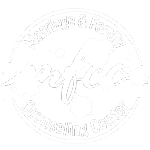 What is counseling?! Thankfully the last few years have seen an increase in mental health awareness and counseling services, but for all the advances of mental health, we still hear about people who have differing views on what exactly counseling is.
What is counseling?! Thankfully the last few years have seen an increase in mental health awareness and counseling services, but for all the advances of mental health, we still hear about people who have differing views on what exactly counseling is.
According to the American Counseling Association (ACA), counseling is defined as a “professional relationship that empowers diverse individuals, families, and groups to accomplish mental health, wellness, education, and career goals.”
Sounds nice and tidy, huh?! Let’s break it apart a bit. There’s a couple key words that start that definition, ‘professional relationship.’ While many of us have friends or family that we may turn to for advice at times, there are times that seeking counsel from friends or family may not be in our best interest or elicit the kind of help and solutions we are seeking. Certainly, we know there is merit in seeking the counsel of friends and family. At times their advice is invaluable and can (and should) play a vital role in our personal support system. We like to think of professional counseling as bonus, or in addition to, not in place of the individual support system that includes family and friends.
Professional Relationship: The difference between counsel from friends or family and professional counseling is probably most often noted in the training and education that professional counselors receive. Professional counselors, therapists or psycho-therapists are required to seek further education, usually spend several semesters in hands-on training while in school, complete several thousand hours post-graduation in clinical hours under supervision, as well as seek licensure through that state they are providing services through. This extensive and comprehensive education and training ensures that the client can receive methods and solutions specifically geared to their needs and know that the person they are seeking help from is trained to offer help. Often counselors can choose specialty areas to receive further education and training in as well, which further boosts the expertise and resources available to clients for their emotional, mental or psychological needs.
Empowers: The relationship with a professional counselor can best be thought of as a collaborative effort between the counselor and the client, where the counselor empowers clients by assisting them in identifying goals, encouraging them through necessary behavior changes, and supporting them in their emotional, mental or psychological needs. This is often a significant distinction between professional and friend or family counseling. Even if others mean well, it is often difficult for those close to us to consistently remain objective because of our close relationship with them. Seeking a professional counselor for help also allows you to resource someone trained to help you with your specific needs, not rely on friends or family for support that may eventually place a drain on the friendship. Seeking outside professional help also allows your relationships to not become defined by your issues and needs, ultimately keeping intact a healthy dynamic in the friendships and family connections that serve as a great support system.
Accomplish mental health and wellness goals: Professional counselors offer an outside, non-judgmental and safe opportunity to process through specific individual situations. Counselors will not judge you on your behaviors, actions or thoughts, but will challenge you in ways that help promote change or growth in your life. The non-judgmental and safe environment you can find from a professional counselor that has no previous ties to you or your situation can be a relief for many who are seeking a more objective viewpoint than their friends or family may offer.
![]() Professional counselors also offer you a confidential space to discuss the struggles you are facing and not fear your confidence will be betrayed. While we at MFCC are big fans of honesty and openness among families and relationships, lets face it, sometimes we need to be assured that what we are thinking and dealing with needs to be handled with a bit more confidentiality than our support circle might afford. Much like health care professions have strict guidelines for confidentiality through HIPAA, counselors are also bound by confidentiality laws. Clients can rest assured that counselors will not convey information about you or your sessions to others.
Professional counselors also offer you a confidential space to discuss the struggles you are facing and not fear your confidence will be betrayed. While we at MFCC are big fans of honesty and openness among families and relationships, lets face it, sometimes we need to be assured that what we are thinking and dealing with needs to be handled with a bit more confidentiality than our support circle might afford. Much like health care professions have strict guidelines for confidentiality through HIPAA, counselors are also bound by confidentiality laws. Clients can rest assured that counselors will not convey information about you or your sessions to others.
Mental health and wellness is quite a broad term that encompasses a lot of avenues. Visit our services page or click here for a more in-depth list of issues that clients sometimes face, but taking a look at and working on our overall mental health and wellness can mean anything from finding coping skills to help with anxiety to learning how to communicate effectively in relationships, (yes! Even in those family and friend relationships that offer advice and counsel!) to processing through trauma or abuse in your background, and so much more!
One of the misnomers about counseling that we often hear about is that ‘counseling isn’t for issues like education and careers.’ This is sad to hear, because sometimes the anxiety and stress problems we experience can be directly tied to issues we may be experiencing in school or at work. Thinking outside the box of ‘typical’ counseling issues and seeking professional help for education and career goals or problems can be beneficial for many clients.
Basically, when we say “Licensed Professional Counseling,’ we believe that means counseling is a confidential and safe relationship with a professional who is trained to help real people find tangible solutions, improve relationships, see areas where they may need to revamp thinking or behaviors, and help move them forward in their mental, emotional or psychological problems.
Ready to start your therapy journey? Schedule your individual, couple, family or child session now!
Join one of our monthly newsletters to keep up with upcoming events, important information about MFCC, mental health and wellness tips. Choose from our general newsletter or topics specific to couples and relationships, family and parenting, or spiritual abuse and religious trauma.
We promise not to spam or pass out your information to anyone. And of course, you are always welcome to unsubscribe at any time.







